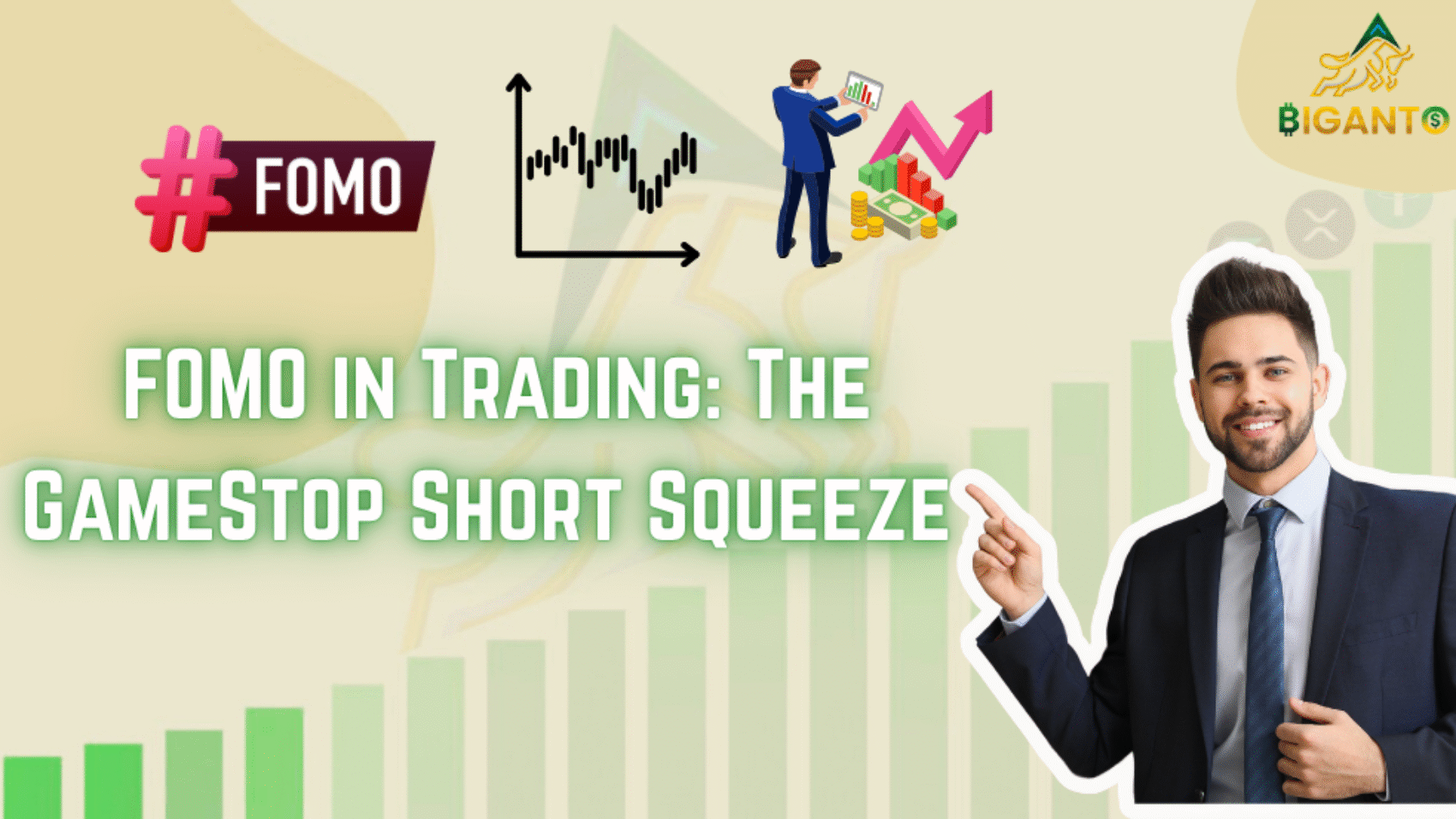2021 ushered in one of the most surprising events in modern financial history the GameStop (GME) short squeeze. What seemed like a mundane market move involving a troubled video game retailer has turned into the latest stock market phenomenon, a David vs. Goliath story pitting the retail traders who hang out on Reddit against the giant hedge funds they love to hate.
At the core of this madness was a potent psychological trigger FOMO (Fear of Missing Out).
In trading, that FOMO is a psychological state of mind that others are making that big money move and you’re missing out. It encourages people to hop into trades not based on doing solid readings of things, but for the most superficial reason in the world: because others are doing it. And during the GME saga, this sentiment exploded.
Tens of thousands of first-time and casual investors piled into the purchase of GameStop shares as the price of the stock soared not for reasons related to the company’s fundamentals, but because social media made it feel like the moment of a lifetime. Fueled by Reddit threads, Robinhood trading and an emerging anti-Wall Street message, GME was no longer just a stock it was a movement.
Background: Describe GameStop and its operations.
GameStop was viewed as a dying company for many years. Physical game stores like GameStop saw a sharp decline in demand as more players shifted to downloading games online. Sales were down, the business model seemed obsolete, and Wall Street had practically written it off.
short selling is like borrowing a stock, selling it at the current price, and hoping to buy it back later at a lower price to make a profit. If the price rises instead of falling, short sellers can lose a lot of money — and fast.
But then something unexpected happened.
In late 2020 and early 2021, GameStop (GME) quietly became one of the most shorted stocks in the entire U.S. market. Hedge funds were betting heavily that the stock price would fall even further — so much so that short interest reached 140% of the available shares.
At the same time, GME was beginning to see a small recovery in its share price, which caught the attention of online retail traders, especially those on Reddit’s WallStreetBets forum.
Much of the buying came from everyday investors using apps like Robinhood, who were motivated not just by profits, but by the idea of challenging Wall Street elites. Social media played a massive role — with Reddit users posting memes, analysis, and screenshots of huge profits, creating a wave of FOMO (Fear of Missing Out) among others.
Robinhood imposed trading restrictions barring new long positions in GME and a few other stocks while continuing to permit unwinding of existing positions. This triggered a furious uproar among its customers and in the press, and many politicians also voiced outrage.
FOMO Takes Over
Now let’s talk FOMO — Fear of Missing Out. It’s a powerful emotional trigger that clouds rational decision-making.
Social media hype
Social media was filled with GME movement. YouTube livestreams and posts on r/Wallstreetbets, contributed to the attention retail investors gave to GameStop as they began to buy the stock in large quantities.
Fear of Missing
Investors feared that if they didn’t buy in immediately, they would miss out on life-changing gains. Beginner bought at the top and faced severe losses when GME crashed back down.
Retail trader euphoria
Apps like Robinhood made trading feel like a game — low-cost, quick, and addictive. This ease of entry meant more frequent trades, often based on feelings rather than research.
Anti-Institutional Attitude
The GME squeeze turned into a kind of rebellion and wasn’t just about the money. Because they thought they were retaliating against dishonest hedge funds, many investors harbored anti-Wall Street sentiments. Because it allowed people to join a movement, this “David vs. Goliath” mentality made FOMO worse.
Consequences of FOMO-Driven Trading
Key Losses: Because brokerages restricted trading (citing volatility and capital demands), and because the institutional buying pressure vanished, GME lost most of its value in the days after its high. And many of those who bought at the top took big losses.
Failure to do proper homework: FOMO makes it too easy to circumvent common sense. Investors in the frenzy paid little attention to fundamental analysis, risk assessment or diversification.
Trading on Emotions: I decided to trade based on euphoria, greed or fear of missing out rather than rational bitcoin price outlook.
Market Volatilit: The planned buying and selling caused a massive spike in volatility, making the stock incredibly unpredictable.
What Traders can Learn from FOMO
The GameStop short squeeze is an incredibly valuable story and learning experience for investors of all stripes.
Know the Power of FOMO:
We all have experienced FOMO, it is a totally normal, human emotion but it can really wreck your ability to make good investment choices. Just know that when it feels like you are getting pressure to act quickly because others seem to be successful, when you try to hurry to get great results and then just get ok results, fucking with… External Validation.
Do Your Own Homework:
Never trust internet hype or social media “tips.” As always, do your investment homework and research a company’s most up-to-date fundamentals, financials and economic outlook before making any investment decision.
Establish Your Investing Plan:
Clearly establish what your investing goals are, your risk tolerance and how long it you want/invest to be. So stick to your play rather than making whimsical decisions.
Conclusion
The GameStop short squeeze of 2021 wasn’t just a story on Wall Street — it was an all-out cultural moment. What began as a mutation in a risk-loving corner of the internet quickly swelled into something much larger: a full-fledged meme in Washington, where a stock market like no other suddenly intersected with the political world in a way that transcended the merely financial. At the core of it was FOMO — the powerful psychological driver that convinces us we are missing out on the next big thing.
Thousands of ordinary investors got caught up in the moment, sometimes making decisions that were fueled more by memes and momentum than research and reason. And while a few went home winners, some of the rest — especially those who bought near the peak — were stuck with losses no one saw coming.
This case illustrates one very important lesson about trading: Emotion is the enemy of sound decision-making. FOMO trading is rarely grounded in logic or analysis. It’s reactive. It convinces us that everyone else knows something we don’t. It makes us chase gains instead of planning them. And it often ends with regret.

